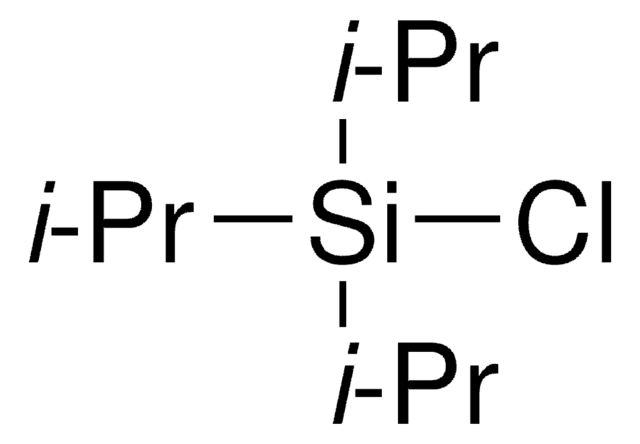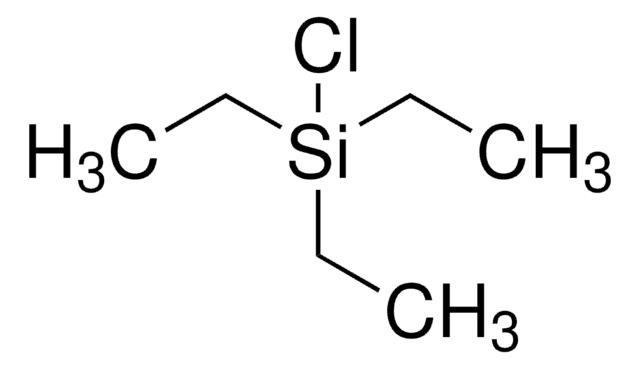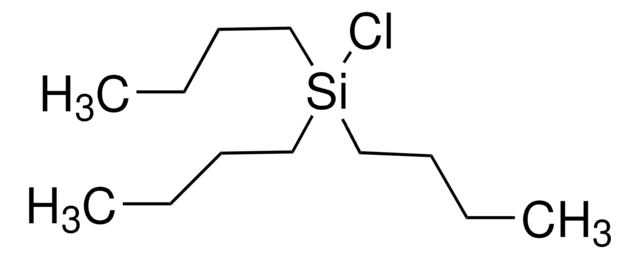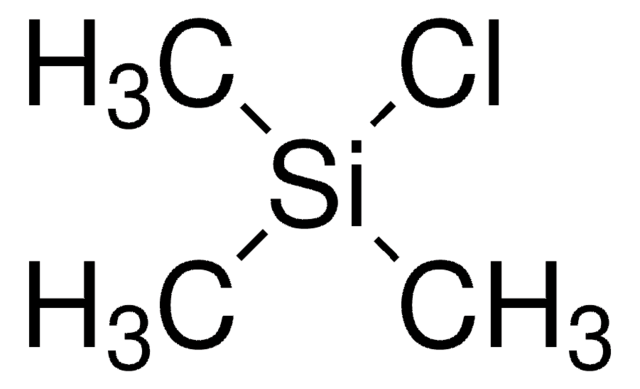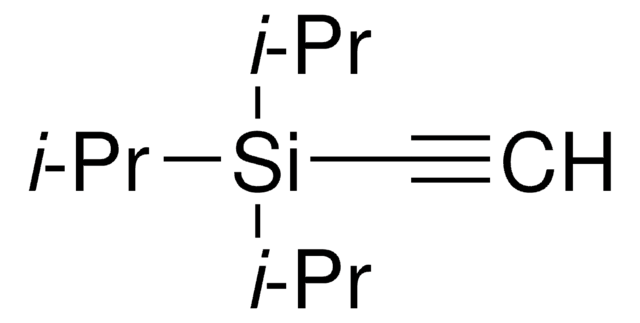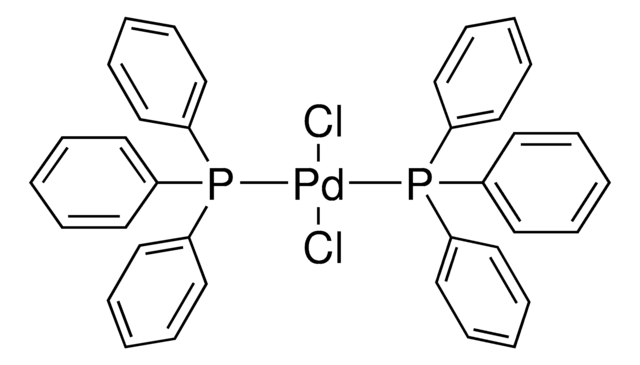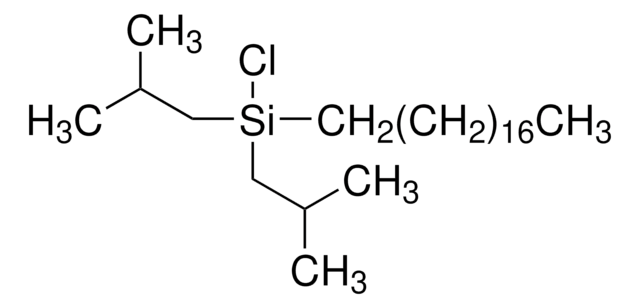291013
Chlorotriisobutylsilane
97%
Synonym(s):
Triisobutylchlorosilane, Triisobutylsilyl chloride
Sign Into View Organizational & Contract Pricing
All Photos(1)
About This Item
Linear Formula:
[(CH3)2CHCH2]3SiCl
CAS Number:
Molecular Weight:
234.88
Beilstein:
2409275
EC Number:
MDL number:
UNSPSC Code:
12352001
PubChem Substance ID:
NACRES:
NA.22
Recommended Products
Quality Level
Assay
97%
refractive index
n20/D 1.448 (lit.)
density
0.875 g/mL at 25 °C (lit.)
SMILES string
CC(C)C[Si](Cl)(CC(C)C)CC(C)C
InChI
1S/C12H27ClSi/c1-10(2)7-14(13,8-11(3)4)9-12(5)6/h10-12H,7-9H2,1-6H3
InChI key
TZPZCTBZJKZFGY-UHFFFAOYSA-N
Looking for similar products? Visit Product Comparison Guide
Application
Chlorotriisobutylsilane can be used as an intermediate in the synthesis of:
- Silicon (IV) phthalocyanines, which are used as photosensitizers for the photodynamic inactivation of bacteria.
- Poly(4-alkylthiazole) polymers exhibiting optical and electronic properties.
- Bis(trialkylsilyl oxide) based silicon phthalocyanines applicable as ternary additives in organic photovoltaics.
Signal Word
Danger
Hazard Statements
Precautionary Statements
Hazard Classifications
Skin Corr. 1B
Storage Class Code
8A - Combustible corrosive hazardous materials
WGK
WGK 3
Flash Point(F)
188.6 °F - closed cup
Flash Point(C)
87 °C - closed cup
Personal Protective Equipment
dust mask type N95 (US), Eyeshields, Gloves
Choose from one of the most recent versions:
Already Own This Product?
Find documentation for the products that you have recently purchased in the Document Library.
Customers Also Viewed
Bis (trialkylsilyl oxide) Silicon Phthalocyanines: Understanding the Role of Solubility in Device Performance as Ternary Additives in Organic Photovoltaics
Vebber MC, et al.
Langmuir, 36(10), 2612-2621 (2020)
Octacationic and axially di-substituted silicon (IV) phthalocyanines for photodynamic inactivation of bacteria
van de Winckel E, et al.
Dyes and Pigments, 145, 239-245 (2017)
Our team of scientists has experience in all areas of research including Life Science, Material Science, Chemical Synthesis, Chromatography, Analytical and many others.
Contact Technical Service